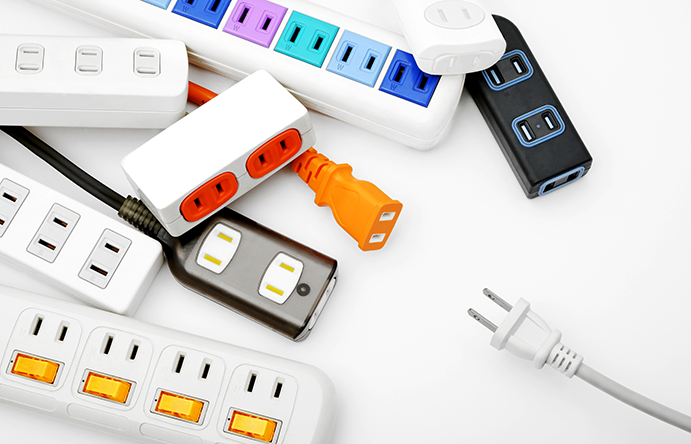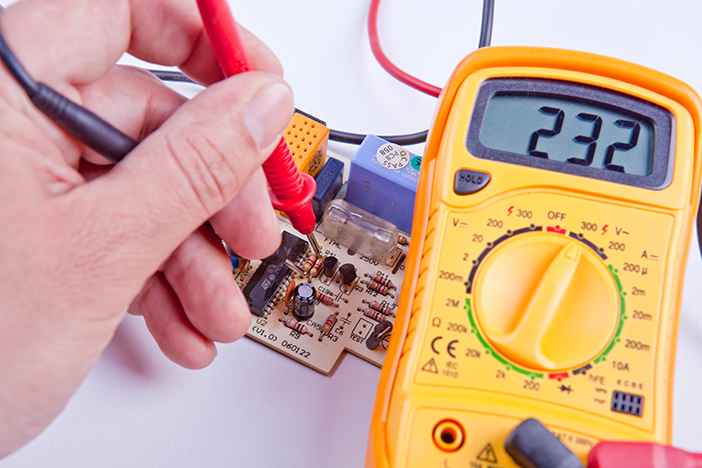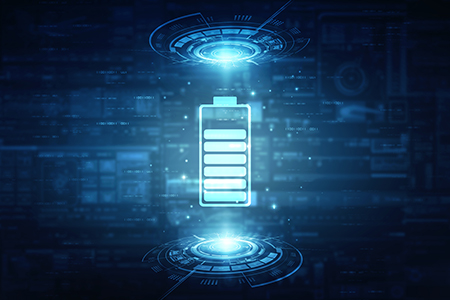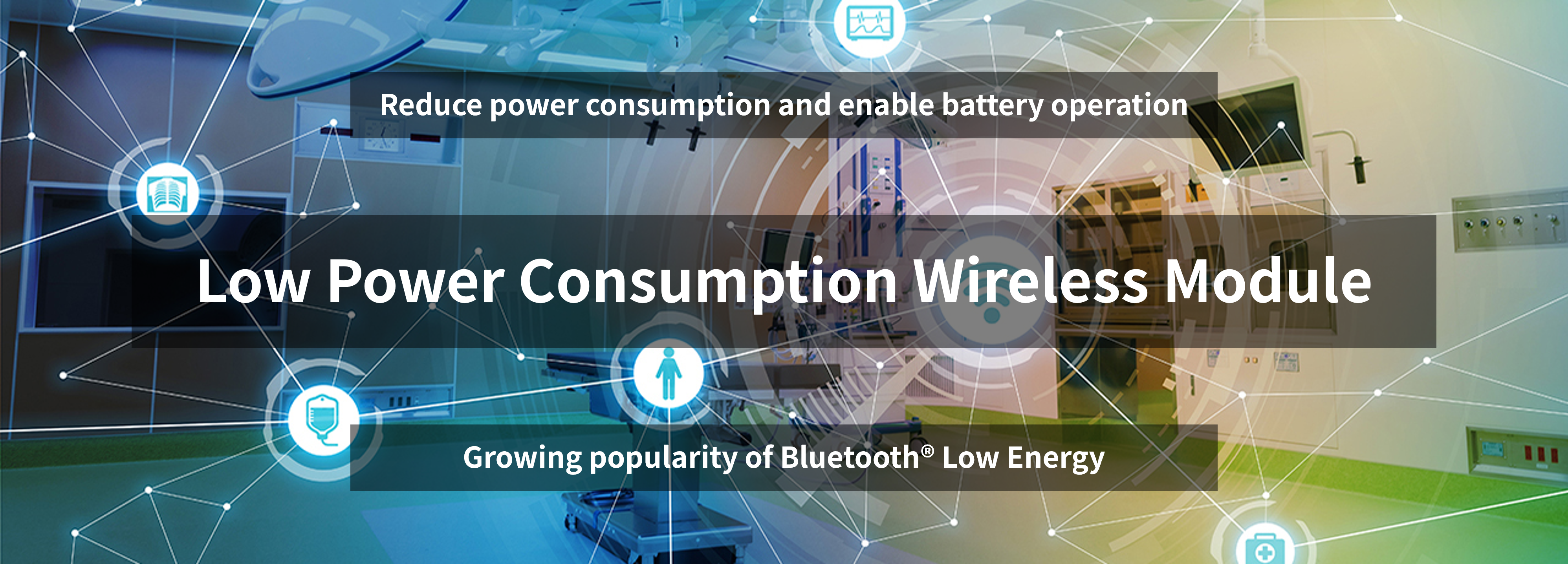KAGA FEI’s wireless modules are already making a difference in your everyday life, in applications like home automation and smart buildings. Connecting things that previously weren’t networked makes life so much more convenient nowadays. Once you experience this convenience, you won’t want to go back to the old ways. We support the realization of such products.


However, implementing wireless solutions can sometimes present challenges, especially in securing a power source for wireless devices. Renovating buildings where power lines are already installed or installing wireless devices in places where power cables cannot be extended often requires extensive wiring work. In such cases, battery-powered wireless devices expand the possibilities, but frequent battery replacement can be a burden. Here, we introduce the features of Kaga FEI's low-power consumption wireless modules.

Choosing Bluetooth Low
Energy Wireless
Among the various wireless standards, BLE is
characterized by its low power consumption. While it
doesn’t offer the high-speed transmission like Wi-Fi,
it’s ideal for smaller data transmissions, such as
sensor data or switch on/off communications. Kaga FEI
offers over 20 types of BLE modules, as well as combo
products(*). You can find the best module that meets
your requirements.
* Equipped with both wireless LAN
and BLE functions, allowing you to use different
communication standards.
Power
Consumption
The lower the power consumption of the wireless device used for communication is, the longer the battery life is. KAGA FEI’s wireless modules designed for low power consumption are expected to last over one year with a lithium coin battery (CR2032) depending on the communication interval.


Transmission Power
Control
The wireless communication does not always need to be maximum output power depending on a communication distance. By setting appropriate transmission power for a distance, which can reduce power consumption, the battery life can be extended accordingly. It is possible to achieve both communication distance and battery life by properly controlling the module with software.

Using the average current consumption of the module, you can estimate the battery life. The
average current is calculated by balancing the transmission current and standby current over
time:
Average Current = Transmission Current x Transmission Time + Standby Current x
Standby Time
Based on this, you can determine the suitable battery candidates. Each
type of battery has a specific capacity. For example, a commonly used CR2032 coin cell battery
has a capacity of approximately 225mAh. By dividing this battery capacity by the average
current, you can estimate the approximate battery life.
Note: This estimation only applies to the wireless module itself. For practical applications, you need to calculate based on the current consumption of the entire product.
Estimating time until battery
depletion based on average current and battery capacity.
Our
Technical Support
Application Example of Wireless
Modules
* The Bluetooth® word mark and logos are owned by the Bluetooth® SIG, Inc. and any use of such marks by KAGA FEI Co., Ltd. is under license.


